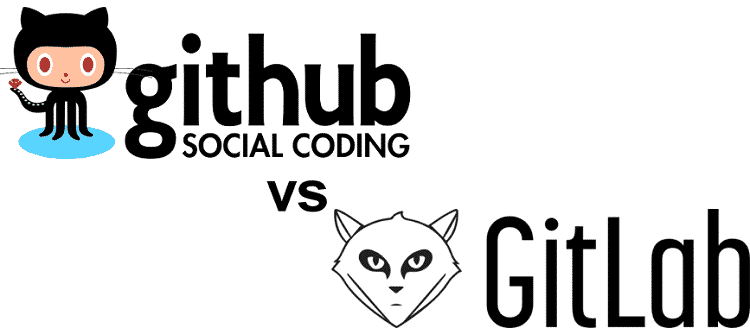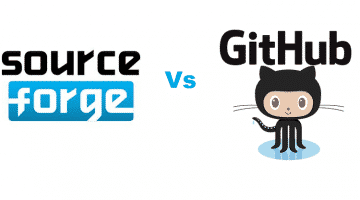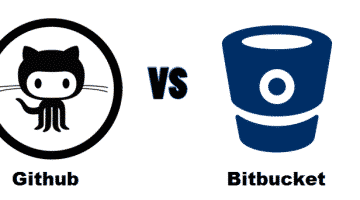A Git is a platform where collaborating members of a developer team can store their code when working on a project from remote positions. It could be that the developers are in different office, cities or countries. It is more like a cloud-service where you can store and access data from remote positions. But Git is more technical oriented and especially used in software development. One can post freelance jobs and hire development and make them collate using Git services.
The two most popular Gits are GitHub and GitLab. Apart from such storing and retrieving services, these platforms allow the customers to check the code, find out the issues and suggest solutions for resolving the issues. It is more like working on a programming platform with advanced debugging feature. As a matter of fact, GitHub and GitLab allow their customers to completely manage software development lifecycle. Even though both the platforms offer similar services, there are certain basic differences that you will find useful while choosing the right platform for you.
The Differences Between GitLab and GitHub –
Both these platforms allow developers to store, share, test, and collaborate on projects. GitHub started in 2008 and currently has 26 million users. GitHub is popular for open source development due to its feature to share any project publicly. There is also an option for private projects but such a plan is quite expensive. GitHub can do issue analysis, issue tracking and issue resolve along with documentation. GitLab, on the other hand, started in 2011 and has more than 1,00,000 users and some of the big clients are IBM, Sony, and NASA. It has most of the features that GitHub has and there are some additional unique features.
Continuous Integration –
Every time a team member uploads a code or modifies the previously saved source code, the code has to be built and tested for issues. By building the code means to integrate it with the existing project. GitLab offers automatic integration which means every time a new code is placed in the project, it builds a complete project and tests for issues. This is called continuous integration or CI and GitLab has its own CI service for free. On the other hand, GitHub uses third-party CI services and hence, a person has to manually integrate it all the time which is such a loss of time.
Winner – GitLab because of automatic integration and built-in CI.
User Permission –
GitHub lets the customer or manager decide the permission for the users in the team and it can be set to read or write. But GitLab offers better flexibility and controls as it lets the manager set different settings for different users and it is more than just read or write. You can let someone check the issue in source code and do not give him the permission to modify the source code. It is instrumental in any project development. With such options, you can easily post freelance jobs and hire someone to consult and get suggestions for resolving the issues without actually showing him the source code.
Winner – GitLab due to better and specific user permission options.
Tracking Issues and Integration–
There is no doubt that both the platforms have robust issue tracking facilities. You can assign members to solve issues and change status accordingly. The bug tracking is great and solutions are also provided for automatic modification approval. Both of them uses third-party bug tracker Usersnap. Testers can test your application and send feedback. The manager can forward the bug reports and the user feedback to the development to solve them. When it comes to integration with third-party applications, GitLab is still at its adolescence with only the popular ones available. On the other hand, GitHub has a marketplace of all the different types of third-party apps to boost productivity and workflow.
Winner – GitHub. They use the same third-party bug tracker and GitHub has a marketplace to integrate your application with more a number of useful third-party ones than GitLab which is still growing.
Import and Export Data –
When you are working on a project, documentations play an important role especially when you hire freelancers from different parts of the world and they are working from their homes. Furthermore, since GitHub is good for open-source development and GitLab is for private projects, you may have to shift from one platform to the other as per requirement. In such scenario, exporting and importing data is essential. GitLab provides a complete documentation on how to import while GitHub does not have one. But you can use GitLab Importer from the marketplace to migrate from GitLab to GitHub. GitHub does not allow everything to be exporter which is very unprofessional.
Winner – GitLab due to detailed documentation and easy migration.
Pricing and Community –
GitHub is more popular and its popularity can be attributed to its early start and highly active community. GitLab does not have a big community yet and it has been a late starter but it is gaining popularity exponentially as various large development teams have started to prefer GitLab over GitHub.
GitHub’s enterprise plan starts from $84 for one user per year while GitLab’s starts from $39 per user per year. GitLab provides unlimited public and private repositories for free while GitHub provides free unlimited public repository only.
Winner – Github has better community while GitLab has better pricing.
Even though the popularity of GitHub is far greater than GitLab, the trend shows that larger development teams are migrating from GitHub to GitLab due to shuttle advanced features that can save their time and make their work swift and efficient.




